Event Calendar 
-
April 30.23:59 - 23:59
-
April 30.23:59 - 23:59
-
May 1.00:01 - 23:59
-
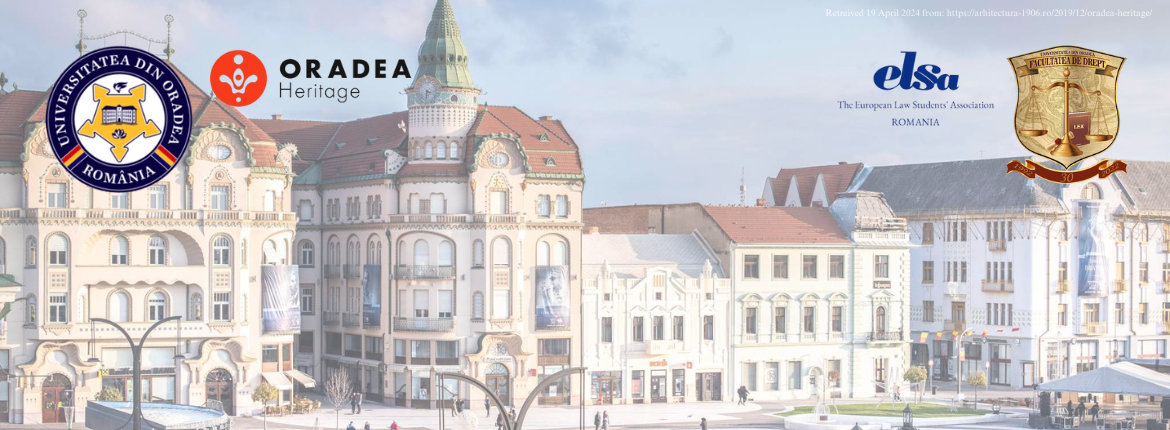 May 6.23:59 - 23:59
May 6.23:59 - 23:59 -
May 20.00:01 - 23:59
From October 8 to 15, 2022, Istanbul University, the University of Szeged, and the University of Konstanz conducted the seventh annual Dreiländer Seminar (Three Countries Seminar) on “Digitalizing Criminal Proceedings.” Graduate students, doctoral students, and academics from Turkey, Germany, and Hungary attended the event, which was held in English and German.
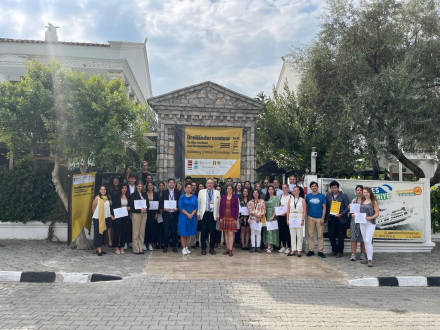
The seminar was carried out under the Erasmus+ Higher Education Strategic Partnership’s “DIGICRIMJUS: New Challenges for Teaching, Researching, and Practicing Criminal Law in the Digital Age” (2020-1-HU01-KA203-078670) program. The three universities contributed to the event with their own funds, and in the case of Hungary, with partial aid from the Minister without Portfolio for Family Affairs (NTP-HHTDK-21-0056).
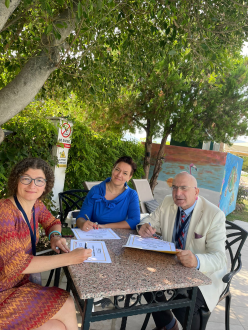
The Hungarian delegation, headed by Prof. Dr. Krisztina Karsai of the University of Szeged, and the German delegation, led by Prof. Dr. Liane Wörner of the University of Konstanz, were hosted by Istanbul University’s Prof. Dr. Adem Sözüer.
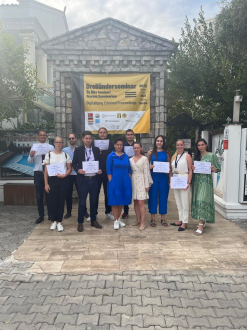
The delegation from Szeged also included Dr. Erzsébet Molnár, lecturer, Dr. András Lichtenstein, junior lecturer, and nine students (Petra Agócs, Vivien Aracsi, Mihály Botos, Kitti Csécsei, Gellért Magony, Nikolett Móra, Attila György Németh, Bence András Tóth, Kristóf Váczi).
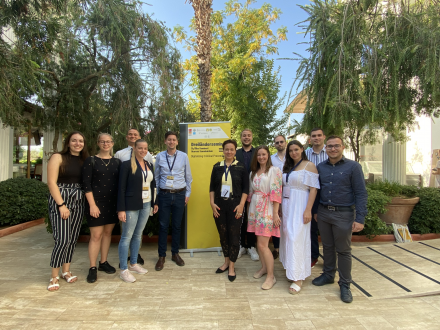
The purpose of the event, which took place in-person in Göcek, Turkey, was for each student team to reflect on the new procedural challenges that have emerged as a result of the rise of digitalization. Students were required to apply comparative law approach to discover common elements and similarities in their respective legal systems. Finally, they were asked to produce a comparative legal analysis summarizing their research findings.
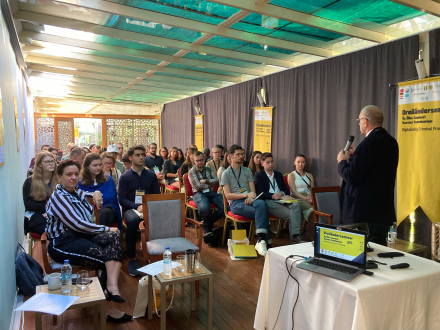
The seminar was preceded by an individual preparation period in which students researched current legislation in their respective legal systems. It was then followed by an online workshop (Meet&Greet, 1 September 2022), during which the members of the student teams got to know each other. Following that, planning for the in-person seminar proceeded online but together (in a way).
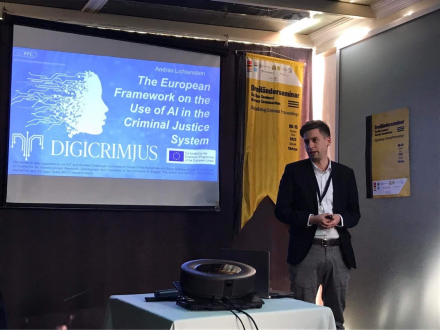
The seminars were kicked off with the opening lecture by Dr. András Lichtenstein titled “The European Framework on the Use of AI in the Criminal Justice System,” and then the methodological portion of the course began with the lecture called “Comparative methods to be applied” by Prof. Dr. Liane Wörner.
The topics of the seminar were the following:
- Die verdeckte Beschlagnahme beim Dienstanbieter (verdeckte Datenherausgabe in Deutschland iVm § 95a StPO)
- Die Online-Durchsuchung: ‚Hacking‘ informationstechnischer Systeme von Beschuldigten (in Deutschland iVm § 100b StPO)
- Criminal investigation undercover – The Admissibility of digital undercover investigation in criminal investigation (prerequisites, possibilities, challenges, constraints)
- Grenzüberschreitender Zugriff auf Informationen und Informationssysteme de lege lata (in Deutschland iVm §§ 92 ff. IRG)
- Admissibility and Inadmissibility of AI-based investigative Findings within Criminal Proceedings - Worldwide Criminal Proceeding? – Admissibility of Evidence in National Criminal Proceedings when Accessing Cryptographic Data on Mobile Devices (The Case of EncroChat)
- Simultaneous Video and or Audio Transmission in Cases of Removal of the Accused from Trial – Information and Communication Techniques as Challenges to the Criminal Trial.
- The E-Evidence-Regulation of the EU (EPOC) and how it shapes the national criminal procedure within and beyond the EUA
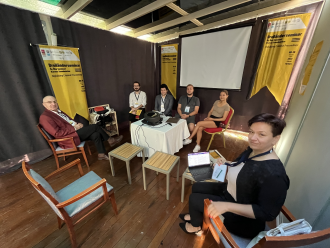
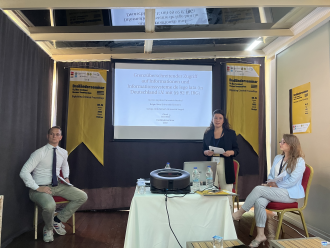
First, law students and PhD students presented the current condition of their online collaborative work and explored potential improvements. Their preferred methods of legal comparison were also reviewed, as were their expected findings. Following that, the teams had to make a 30-minute scientific presentation of the results of their comparative legal research in an intensive collaborative framework.
Furthermore, given the intriguing topics, students had to experiment with another form of scientific dissemination as well: podcast production. In November, these podcasts will be the topic of an online competition which is open to all interested parties who would like to participate!
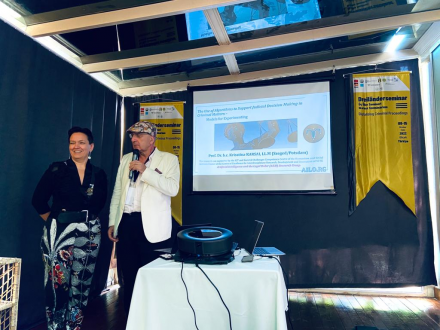
Prof. Dr. Krisztina Karsai’s presentation on the “Use of Algorithms to Support Judicial Decision Making in Criminal Matters – Models for Experimenting”
on the state of adoption of algorithmic decision-making provided the technical foundation for the joint fishbowl-style discussion on the last day of the event, titled “The Digital Judge of the Future: Digitizing the Decision Making Process and/or Decisions themselves?”
In addition to the academic program, the host University of Istanbul organized cultural programs and events showcasing Turkey’s natural beauty, cultural diversity and historical heritage.

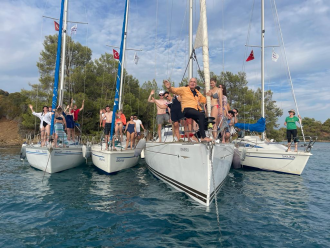
The research was supported by the ICT and Societal Challenges Competence Centre of the Humanities and Social Sciences Cluster of the Centre of Excellence for Interdisciplinary Research, Development and Innovation of the University of Szeged.

![]()